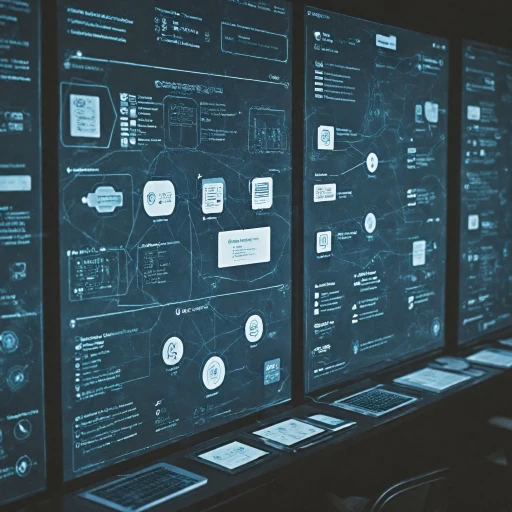
Understanding the Importance of Diversity in Hiring
The Importance of Diversity in the Hiring Process
In today's interconnected world, understanding the importance of diversity, equity, and inclusion (DEI) in hiring is essential for creating a dynamic and successful workplace. A diverse team brings together a wide range of perspectives, ideas, and solutions which can lead to improved problem-solving and innovation. Increasing diversity in the workplace is not just an ethical obligation but also a strategic advantage. Organizations with diverse and inclusive environments are more likely to attract and retain top talent, improve employee satisfaction, and increase their bottom line. Creating an inclusive workplace starts with the hiring process. By crafting interview questions that promote diversity equity, employers can make strides toward fostering an inclusive work environment. This not only helps identify candidates who align with a company's core values but also challenges existing biases that might exist within the hiring process. Candidates today are increasingly mindful of an organization's commitment to diversity and inclusion. By showcasing active efforts in diversity inclusion, companies can appeal to a broader pool of candidates, ranging from different racial and cultural backgrounds to various gender identities and sexual orientations. A workplace that values equity inclusion reflects its dedication to offering equal opportunities and fostering a culture of acceptance and collaboration. Moreover, by elevating the focus on diverse and inclusive hiring practices, companies can build teams that reflect the variety of their customer base and community. This alignment can significantly enhance customer engagement and satisfaction, as clients often feel more connected to companies that share and represent their values. To further explore how companies are integrating DEI in their hiring strategies, the article Enhancing Candidate Experience with DEI in AI-powered HR offers valuable insights into the role of artificial intelligence in this transformative journey.The Role of AI in Enhancing Diversity
The Transformative Potential of AI in Facilitating Diversity and Inclusion
The integration of Artificial Intelligence (AI) into human resources processes has proven to be a game changer in fostering diversity and inclusion (DEI) within the workplace. Employers seeking to cultivate a diverse and inclusive environment can greatly benefit from leveraging AI to enhance their hiring practices. For instance, AI can help reduce unconscious bias in the early stages of the hiring process by streamlining resume screenings and ensuring a more equitable evaluation of candidates.
AI-powered platforms can analyze data from past hiring trends and provide insights into an organization's diversity metrics. This allows companies to identify gaps in their hiring processes and implement strategies that promote inclusion. By automating certain aspects of recruitment, such as the initial screening of applicants, AI can mitigate human biases that may inadvertently affect hiring decisions.
Moreover, AI tools can be utilized to evaluate the language and framing of job postings and interview questions, ensuring they are inclusive and approachable to candidates of all backgrounds. By using machine learning algorithms to flag potentially discriminatory language, employers can refine their approach and create a more welcoming atmosphere for people from different demographics, including varied racial, cultural, and sexual orientation perspectives.
Institutions that implement AI-driven systems often experience a more streamlined, transparent, and equitable hiring process, which is crucial in today’s competitive market. To explore more on this transformative potential of AI in DEI initiatives, consider reading this empowering article on diversity and inclusion that delves deeper into how AI is shaping the future of HR practices.
As organizations adapt to an increasingly diverse workforce, understanding and applying AI’s capabilities is essential in crafting an inclusive work environment. Strategic implementation of these tools can lead to a more supportive workplace, fostering innovation and collaboration among team members of different backgrounds.
Crafting Effective Diversity Interview Questions
Designing Questions for an Equitable Hiring Process
In the ever-evolving landscape of human resources, understanding the nuances of diversity, equity, and inclusion (DEI) is more crucial than ever. Crafting interview questions with a focus on such principles is necessary to ensure a workplace that stands proud in its diverse and inclusive environments. Thoughtfully designed interview questions not only allow hiring managers to assess the candidates' skills and qualifications but also their capacity to contribute positively to a diverse team. When crafting DEI interview questions, it's crucial to gear them towards specific objectives. For instance, the questions might aim to assess the candidate's experience working in diverse teams, their understanding of equity inclusion, or their insights on fostering an inclusive workplace. An example could be asking candidates how they have previously promoted diversity inclusion in their past roles or how they perceive their role in cultivating an inclusive environment at the workplace. Such questions should be open-ended to encourage candidates to share genuine experiences and insights, rather than rehearsed answers. Ensuring questions are inclusive means avoiding assumptions or biases based on the candidate's background, such as ethnicity or sexual orientation. Consider these examples of inclusive questions:- "Describe a time you contributed to making your work environment more inclusive. What was the impact?"
- "How do you approach understanding perspectives that differ from your own?"
- "What strategies have you employed to foster equity in workplace settings?"
- "Can you share an experience where working in a diverse team improved an outcome?"
AI Tools for Analyzing Interview Responses
AI-Powered Tools for Examining Interview Responses
Artificial Intelligence has revolutionized various aspects of the hiring process, providing a more inclusive environment. When it comes to analyzing interview responses, AI tools offer unique capabilities that aid in promoting diversity and inclusion in the workplace. AI tools can scrutinize responses for patterns or phrases that might indicate unconscious biases, thereby enhancing equity and fairness within the hiring process. By implementing these tools, organizations can ensure that the focus remains on a candidate’s qualifications rather than being inadvertently swayed by bias. Furthermore, these tools can efficiently process large volumes of interview data, saving valuable time and allowing HR teams to concentrate on engaging with candidates personally. Some specific technologies include:- Sentiment Analysis: This AI-driven feature evaluates the emotional tone of interview responses. It is particularly useful for detecting potential bias in a candidate's language, fostering a more inclusive environment.
- Natural Language Processing (NLP): NLP helps in understanding the context and intent behind the interview answers, aiding in maintaining a diverse and equitable hiring process.
- Machine Learning Algorithms: These algorithms can identify successful traits from past candidates, guiding your team in creating more inclusive interview questions.
Challenges and Ethical Considerations
Overcoming Challenges in the Intersection of AI and Diversity
Implementing AI in the hiring process with diversity and inclusion in mind is not without its challenges. One of the key issues is ensuring that the AI systems are free from biases, which could inadvertently undermine the very goals of diversity, equity, and inclusion (DEI). To ensure equity in hiring, it is vital for organizations to carefully evaluate the data inputs used to train AI systems. If the training data lacks diversity or reflects systemic biases, then the AI's recommendations can perpetuate those biases. It’s crucial that companies invest time in understanding how the AI is making its decisions, ensuring transparency in the process. Moreover, the ethical considerations in utilizing AI for diversity hiring cannot be overlooked. AI-driven systems can sometimes misinterpret or overlook the nuanced aspects of human interaction and understanding, leading to potential misunderstandings in the evaluation of candidates. For example, when analyzing interview responses, it's important that AI tools value diversity by recognizing varied communication styles without penalizing candidates for deviating from a perceived 'norm'. Despite these challenges, AI offers a pathway to a more inclusive work environment by systematically reducing conscious and unconscious biases that can occur during human-led hiring processes. By being aware of these potential pitfalls, companies can foster a more equitable and inclusive workplace, while benefiting from the diverse perspectives brought in by a varied group of team members. Overall, the successful integration of AI in enhancing diversity in hiring relies on continuous refinement and ethical vigilance. As teams implement AI tools, the goal remains to build a diverse and inclusive workplace that not only acknowledges but celebrates differences, including those of sexual orientation, creating an enriching and dynamic working diverse environment for all candidates. For further insights into the complexities and opportunities in enhancing candidate experiences with DEI in AI-powered HR, consider exploring additional resources or studies that address these evolving paradigms.Future Trends in AI and Diversity Hiring
Envisioning the Diversity-Driven Future of Hiring Practices
In the ever-evolving landscape of human resources, the synergy between artificial intelligence and diversity efforts is far from reaching its zenith. Companies are progressively leveraging AI to foster an inclusive environment that embraces a myriad of perspectives, backgrounds, and talents. AI's potential to refine and enhance the diversity, equity, and inclusion (DEI) initiatives within organizations is profound. As AI continues to develop, its role in identifying biases, facilitating fair hiring practices, and even refining the crafting of interview questions is anticipated to grow. This journey towards a more diverse workplace is not without its challenges, as noted in the consideration of ethical dilemmas. However, as AI tools become more sophisticated, their ability to provide unbiased and data-driven insights will prove invaluable in shaping the hiring process. Looking ahead, the adoption of AI in hiring processes can lead to the:- Development of Transparent Algorithms: Ensuring algorithms used in the hiring process are transparent and accountable to mitigate biases.
- Creation of Inclusive Interview Platforms: Tools that assist in framing questions diversity, understanding varying cultural contexts, and capturing diverse candidate answers.
- Emphasis on Continual Learning and Adaptation: Organizations must remain agile, allowing AI systems to evolve in response to new data, societal norms, and workplace dynamics.












